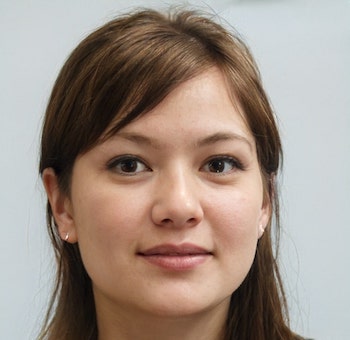Tian Wang Bu Xin Dan — Calm Sleep & Menopause Mood Support
TCM formula for perimenopause & menopause
Ease anxiety, settle the racing mind, and support deeper, more restorative sleep.
Helps with:
-
Calms the nervous system
-
Promotes deeper, more continuous sleep without next-day grogginess.
-
Eases menopause-related anxiety/irritability and that “wired-but-tired” feeling.
-
Phytoestrogens: pairs well with lifestyle changes or HRT (with clinician guidance).
TCM lens: Tian Wang Bu Xin Dan nourishes Heart & Kidney yin, builds blood/fluids, and calms the Shen (spirit). Translation: more coolant, less “yin-deficiency fire,” calmer mind, better sleep.
Modern lens: Botanicals in this classic blend show soothing, adaptogenic, and sleep-supportive activity (e.g., GABAergic and antioxidant signals) that help down-shift stress and support sleep architecture.
Who it’s for
-
Peri/menopause with anxiety, palpitations, insomnia, night sweats, dry mouth/throat, or “overheated” evenings.
-
Anyone who wants a gentle, non-knockout nighttime ally to pair with good sleep hygiene.
Key herbs (highlights)
-
Shu Di Huang (Rehmannia) – deep yin & blood nourishment for deficiency-heat.
-
Suan Zao Ren (Ziziphus seed) – calms Shen, supports sleep quality.
-
Mai Men Dong & Tian Men Dong – moisten dryness, cool deficiency heat.
-
Dan Shen (Salvia), Dang Gui (Angelica) – move/tonify blood for smoother mood and sleep. Dang Gui has phytoestrogens.
-
Yuan Zhi (Polygala) – settles the mind, reduces mental chatter.
(Full traditional formula includes additional synergists; we use professional-grade sourcing.)
How to use
-
Typical use: 3-4 caps/tablets in the evening, or as directed by your practitioner.
-
For sensitive sleepers, start low (e.g., 1 cap) and titrate every 2-3 nights.
-
Pairs well with magnesium glycinate at bedtime and breathwork/CBT-I habits.
Quality & safety
-
Professional-grade herbs, tested for identity & contaminants (heavy metals, microbes).
-
Avoid in pregnancy/breastfeeding.
-
If you have estrogen-sensitive cancers, are on anticoagulants, or take sedatives, consult your clinician before use.
-
Can be combined with clinician-supervised HRT; review your plan periodically
Ingredients
- Di Huang (Sheng) (Radix Rehmanniae), 30.8%
- Ren Shen (Rx/Rz Ginseng), 3.8%
- Fu Ling (Poria), 3.8%
- Yuan Zhi (Radix Polygalae), 3.8%
- Wu Wei Zi (Fructus Schisandrae Chinensis), 7.7%
- Xuan Shen (Radix Scrophulariae), 3.8%
- Bai Zi Ren (Semen Platycladi), 7.7%
- Jie Geng (Radix Platycodonis), 3.8%
- Tian Dong (Radix Asparagi), 7.7%
- Dan Shen (Rx/Rz Salviae Miltiorrhizae), 3.8%
- Suan Zao Ren (Semen Ziziphi Spinosae), 7.7%
- Dang Gui (Radix Angelicae Sinensis), 7.7%
- Mai Dong (Radix Ophiopogonis), 7.7%
Note: This formula has the herb, Bai Zi Ren (Semen Platycladi), which is a tree nut.
Tian Wang Bu Xin Dan – Menopause Anxiety & Insomnia FAQ
1) What is Tian Wang Bu Xin Dan and how does it help with menopause anxiety and insomnia? ›
Tian Wang Bu Xin Dan is a classic Traditional Chinese Medicine (TCM) formula that nourishes yin, supports Heart–Kidney balance, and calms the Shen (settles the mind). In plain English: it helps take the “wired-but-tired” edge off and promotes deeper, more continuous sleep during peri/menopause.
2) Is this a hormonal menopause sleep support supplement? ›
Yes. It is non-hormonal. It works by restoring your body’s “coolant” (yin) and soothing the nervous system, and has phytoestrogens. It can be used alongside clinician-guided HRT and lifestyle changes.
3) Which menopause symptoms does it target—anxiety, insomnia, or hot flashes at night? ›
Primary targets are anxiety, restless mind, palpitations, and insomnia—especially when nights feel “overheated.” It isn’t a hot-flash eraser, but many customers report calmer nights and fewer wake-ups, which can make hot flashes easier to tolerate.
4) How do I take Tian Wang Bu Xin Dan for perimenopause insomnia? ›
Typical use: 2–3-4 capsules in the evening, 30–60 minutes before bed (or as directed by your practitioner). Sensitive sleepers can start with 1 capsule and increase every 2-3 nights. Be consistent for 2–4 weeks to evaluate. It can be taken during the day for anxiety.
5) What herbs are inside and how do they work for menopause sleep support? ›
Key herbs often include Shu Di Huang (Rehmannia) to nourish yin/blood, Suan Zao Ren (Ziziphus) to calm Shen and support sleep, Mai Men Dong and Tian Men Dong to moisten and cool deficiency-heat, Dan Shen and Dang Gui to move/tonify blood, and Yuan Zhi to quiet mental chatter. Together they address the yin-deficiency pattern behind menopause anxiety and insomnia.
6) Can I combine this TCM menopause formula with HRT, SSRIs/SNRIs, gabapentin, or magnesium? ›
Often yes—with clinician guidance. It commonly pairs with bedtime magnesium and can be used alone or alongside HRT. If you take anticoagulants/antiplatelets, have liver disease, or use sedatives, consult your provider first.
7) How long until I feel better sleep and less menopause anxiety? ›
Some notice calmer nights in the first few nights; fuller benefits typically build over 2–4 weeks of consistent nightly use. Track sleep onset, night awakenings, and daytime calm.
8) Who should not use this menopause supplement for anxiety and insomnia? ›
Avoid in pregnancy/breastfeeding. Use caution with blood thinners, significant liver issues, or if you’re under treatment for estrogen-sensitive cancers—get your clinician’s OK. Seek medical care for new chest pain, severe depression, or neurologic symptoms.

